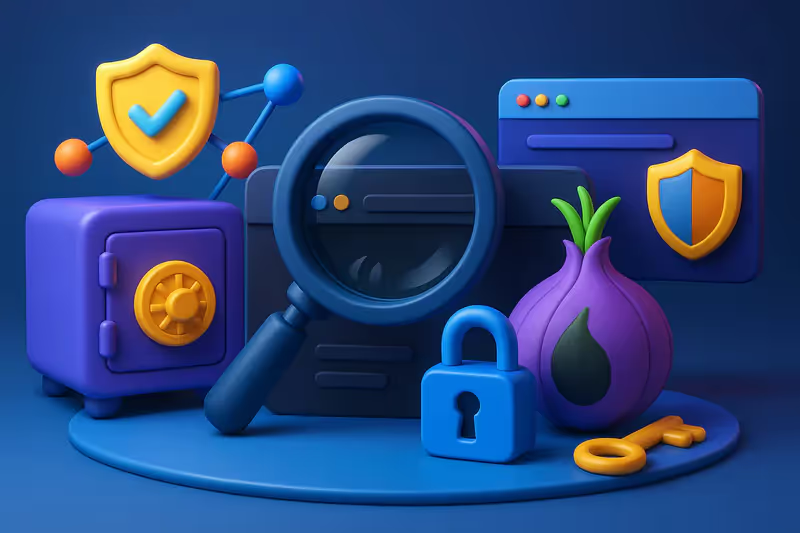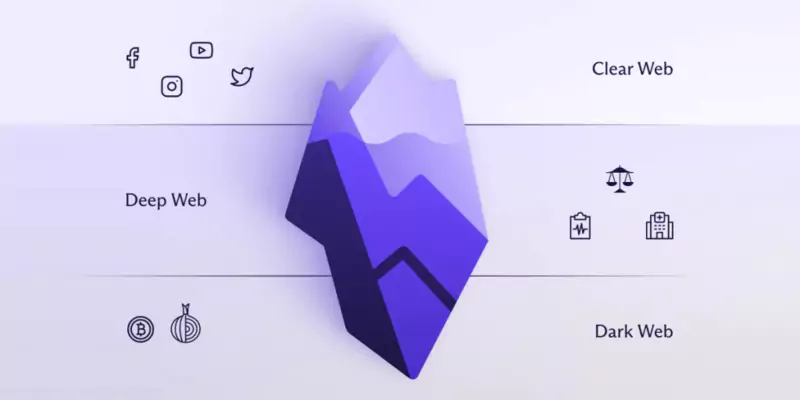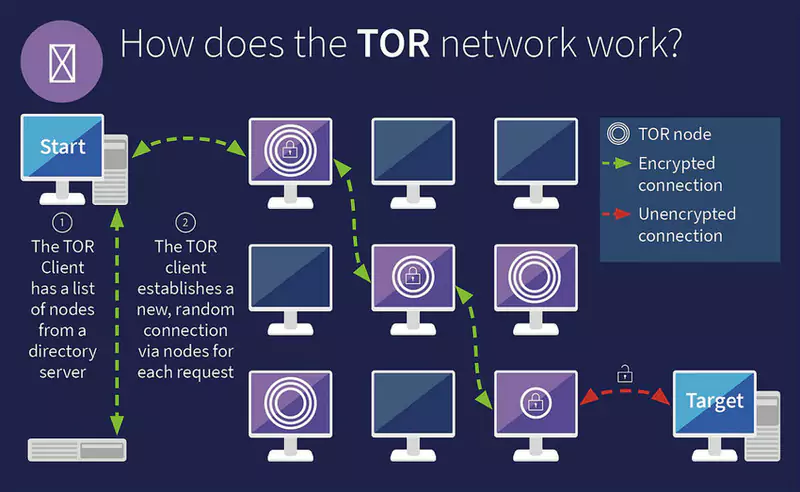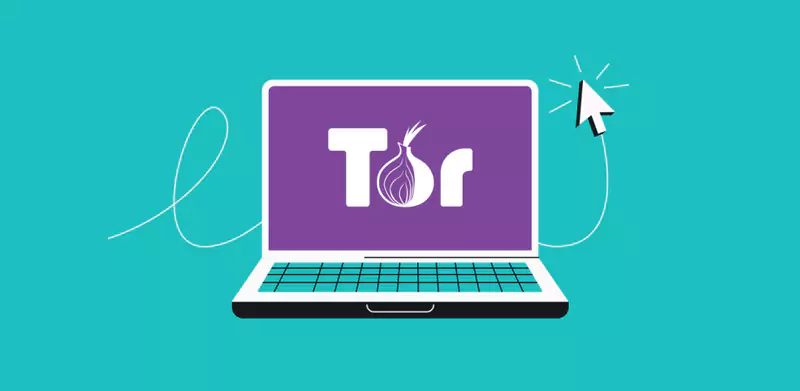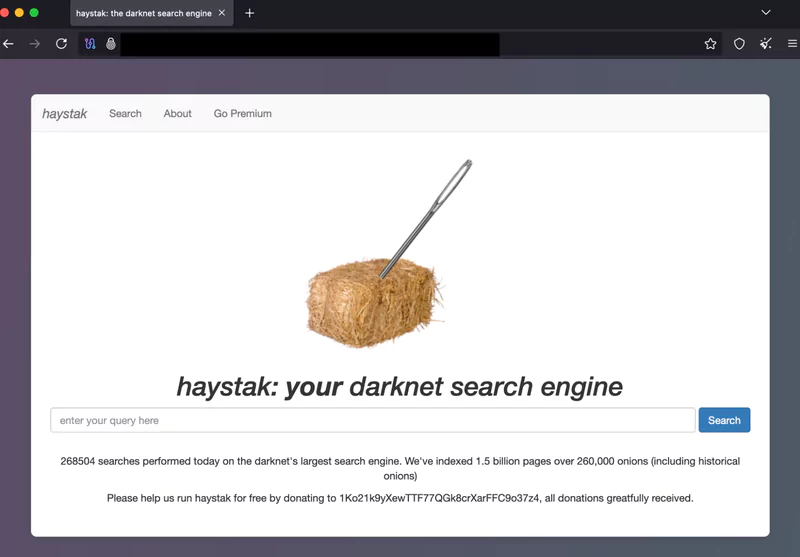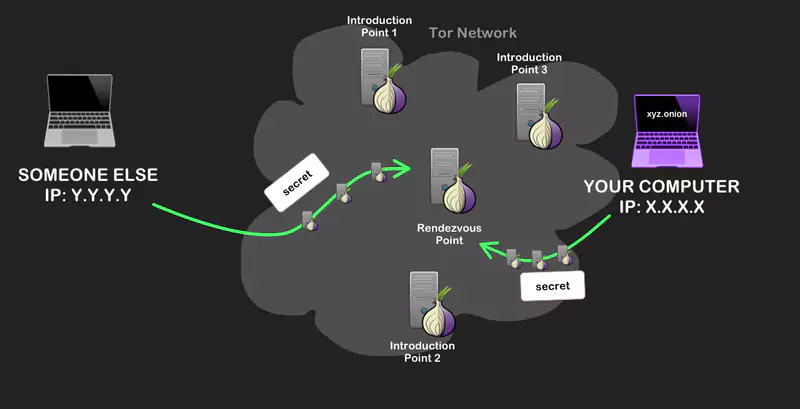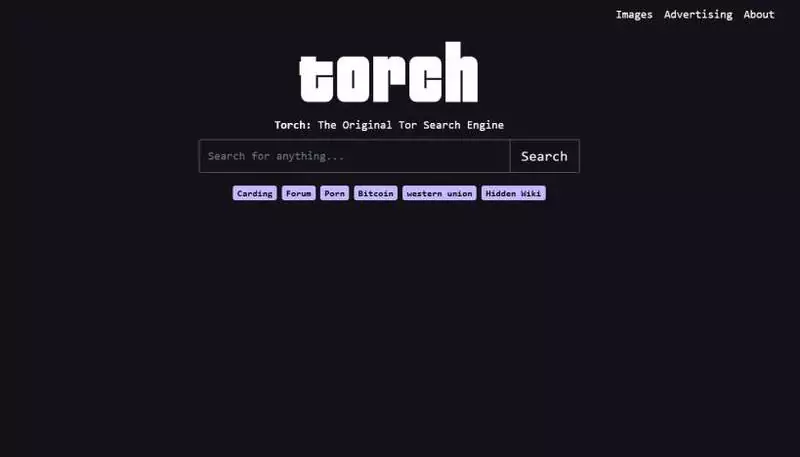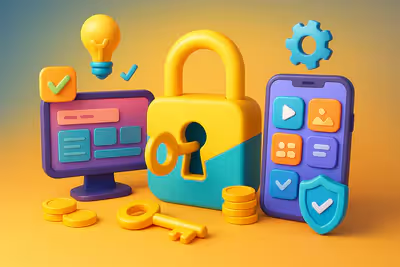Things to consider when browsing the Dark Web
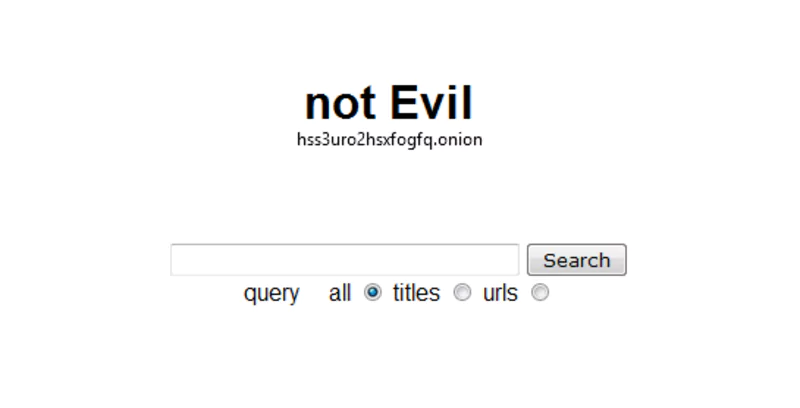
The Dark Web is a largely unregulated part of the Internet, making it a risky place for the casual browser.
If you're looking to protect yourself when accessing the Dark Web and avoid problems (ISPs are often on the lookout for using Tor), here are some things you can do to improve your online privacy and security:
- Always use a VPN before opening Tor. A good Dark Web VPN will protect your data and hide your dark web activities from your ISP.
- Avoid downloading files from the dark web. There is a good chance that the file you are downloading will be loaded Of software malicious.
- Don't click on links that are unfamiliar to you or that seem suspicious to you. SCAM pages are a common sight on the dark web.
- Don't use your personal email address on the dark web. If you need to use one, create a different email address from Of a service focused on privacy, like ProtonMail.
- Always use two-factor authentication to protect yourself from attacks.
- If you are buying products, make sure you are getting them from a reliable source.
What is the deep web?
The deep web is the tip of the Internet iceberg. To fully understand this concept, let's imagine the Internet as an ocean with three distinct levels.
🏗️ The three layers of the Internet
| 🌐 Layer | 📊 Size | 🔍 Accessibility | 🔒 Security | 💡 Examples |
|---|---|---|---|---|
| 🌅 Surface Web | 4% of the Internet | Search engines | Basic | Google, Facebook, Wikipedia |
| 🌊 Deep Web | 96% of the Internet | Login required | Protected | Gmail, online banking, intranets |
| 🕳️ Dark Web | 0.01% of the Internet | Special software (Tor) | Anonymous | Hidden forums, marketplaces |
The 🌅 surface web makes up only 4% of the Internet. These are all sites accessible via Google, Bing or any other search engine: news sites, social networks, online stores, blogs.
The 🌊 deep web forms 96% of the Internet. This layer includes all pages not indexed by search engines: your personal email box, your online bank account, basics corporate data, intranets, password-protected documents.
The 🕳️ Dark Web represents only a tiny fraction of the deep web. It requires special software like Tor to access it and is a network where anonymity takes precedence.
📁 Deep web content
The deep web hosts legitimate and necessary resources:
Medical sector:
- Secure electronic medical records
- Pharmaceutical research databases
- Private telemedicine platforms
Education and research:
- University archives and private digital libraries
- Paid scientific databases
- School Intranets
Businesses:
- Systems of business management (CRM, ERP)
- Corporate Intranets
- Customer databases
Government:
- Non-public government databases
- Administrative management systems
- Classified diplomatic archives
Finances:
- Bank accounts and financial platforms
- Private trading systems
- Credit databases
⚖️ Fundamental distinction
Important: Never confuse deep web and dark web! The deep web simply protects the confidentiality of personal and professional data. Accessing your Gmail account is part of the deep web, not the dark web.
🔑 Access to the deep web
Good news: You already use the deep web on a daily basis without knowing it! Each time you log into your online bank or check your emails, you are navigating through this area. Access is via identifiers, direct URLs or secure portals, without requiring special tools.
Benefits of the dark web
The dark web, despite its sulphurous reputation, offers legitimate benefits for some users. These benefits need to be understood in a context of safety and legality.
⚠️ Advance warning: Although we are detailing these benefits for educational purposes, accessing the dark web involves significant risks. Do not venture there unless you have a perfect understanding of security issues.
🛡️ Protection of anonymity and privacy
| 👥 User Profile | 🎯 Objective | 🛠️ Tools Used | ⚖️ Legality |
|---|---|---|---|
| 📰 Journalists | Confidential source communication | SecureDrop, Tor | ✅ Legal |
| 🗳️ Political activists | Avoid government surveillance | Encrypted forums, secure messaging | ✅ Legal |
| 🏃 Dissidents | Ensure freedom of speech | Anonymous networks, Tor bridges | ✅ Legal |
| 🔬 Researchers | Cybersecurity studies | Isolated environments, VM, Tor | ✅ Legal |
🚫 Circumventing censorship
The dark web allows access to content that is blocked geographically:
Global access:
- Banned news sites in some countries
- Censored social networks
- Free communication platforms
- Restricted digital libraries
🔬 Academic research and cybersecurity
Computer security researchers are studying the dark web to:
- Analyzing new cyber threats
- Understanding hacking techniques
- Develop countermeasures
- Protecting organizations from cyberattacks
💼 Legal secure communication
Some professionals require ultra-secure communication:
- Lawyers discussing sensitive cases
- Doctors discussing confidential cases
- Businesses protecting industrial secrets
🔒 Essential precautions
If you're exploring the dark web for legitimate reasons:
Mandatory to do:
- Always use a reputable VPN before launching Tor
- Keep your operating system up to date
- Keep Tor in its default configuration
- Never enter personal information
Absolutely to avoid:
- Never install additional software
- Do not download suspicious files
- Avoid creating user accounts
Important legal reminder: Access to the dark web is still legal in most countries. Only the illegal activities that take place there are reprehensible. Always respect the laws of your country.
⚠️ The threats of the dark web
The dark web presents significant risks that warrant extreme caution. Understanding these dangers helps you assess whether exploring is really worth it.
Critical warning: This paragraph is only intended to inform you of the risks. We strongly discourage unexperienced users from accessing the dark web.
💻 Technical and security risks
| 🦠 Type de menace | 🎯 Objectif | 💀 Impact potentiel | 🛡️ Protection |
|---|---|---|---|
| 🦠 Malwares | Infecter votre PC | Vol de données, ransomware | Antivirus premium + machine virtuelle (VM sandbox) |
| 🕵️ Surveillance | Désanonymiser | Enquête policière, poursuites | VPN + Tor + bonnes pratiques de sécurité |
| 🎣 Phishing | Voler des cryptomonnaies | Perte financière totale | Ne jamais effectuer de transaction via liens inconnus |
| 🧠 Manipulation | Piéger l'utilisateur | Chantage, extorsion | Formation en cybersécurité & vigilance accrue |
The dark web is full of malicious software designed to infect your computer. These programs can:
- Stealing your personal data and passwords
- Transform your machine into a zombie computer (botnet)
- Encrypt your files for ransom (ransomware)
- Monitoring your activities without your knowledge
💰 Financial scams and scams
Many sites claim to sell products but disappear with the money of the buyers, here are a few preferred targets:
- Cryptocurrencies (difficult to trace)
- The non-existent “miracle” services
- False identities and documents
- Allegedly “exclusive” software
🚫 Illegal and disruptive content
Unfortunately, the dark web hosts particularly shocking content:
| 🚨 Type of Content | 📊 Frequency | 🧠 Psychological Impact | ⚖️ Legal Risk | ⚠️ Observations |
|---|---|---|---|---|
| 👶 Child pornography | Very high | Severe trauma | Fixed prison sentence (10–20 years) | Highly sensitive content, enhanced monitoring |
| 🔪 Extreme violence | High | Post-traumatic stress | Surveillance & prosecution | Often gory, requires increased caution |
| 💊 Drug trafficking | Very high | Indirect addiction | Complicity: fines & imprisonment | Underground sales forums |
| 🔫 Illegal weapons | Moderate | Social anxiety | Terrorism: severe penalties | Sales of firearms & ammunition |
⚖️ Legal risks
Law enforcement is actively monitoring the dark web. Even an innocent visit to some sites can put you under investigation. Here are some possible consequences:
- Your registered IP address
- Activities traced retroactively
- Involuntary association with criminals
- Opening of a judicial file
🛡️ Essential protective measures
If despite these warnings you decide to explore the dark web:
Mandatory technical protection:
| 🛠️ Tool | 🎯 Function | 💰 Cost | ⭐ Importance |
|---|---|---|---|
| 🔐 Premium VPN (NordVPN, ProtonVPN) | Double encryption (Multi-hop) | 3–10 €/month | Critical |
| 💻 Virtual machine (VirtualBox, Qubes OS) | Full system isolation | Free | Essential |
| 🦠 Pro Antivirus (Bitdefender, Norton) | Real-time protection & signatures | 30–50 €/year | Critical |
| 🧱 Strict firewall (pfSense CE/Plus) | Inbound & outbound connection filtering | Free – $0.08/hour | Important |
Behavioral protection:
- Never reveal personal information
- Avoid any purchase or financial transaction
- Do not create user accounts
- Drastically limit browsing time
- Remove suspicious sites immediately
Psychological protection:
- Never sail alone the first time
- Be mentally prepared for shocking content
- Have support to discuss what you might see
- Limit exposure to avoid desensitization
🎯 Final recommendation
For the vast majority of users, the risks of the dark web far outweigh the potential benefits. Anonymity and security can be achieved in other safer ways on the traditional web:
Safer alternatives:
- VPN for private browsing
- Encrypted messaging (Signal, Telegram)
- Browser incognito mode
- Privacy extensions
Key question: Seriously consider whether your objective really justifies these dangers. In 99% of cases, the answer is no.
Conclusion
Although it is an important part of the Internet, accessing the Dark Web can be difficult, especially without a good search engine.
The most popular search engines for the Dark Web can not only help you navigate the vast world of the Dark Web, but also protect your privacy, get away from dangerous sites, and give you access to a lot of sites that you can't find with traditional search engines.
FAQ
Do “classic” sites (web surface) have addresses that can be indexed by dark web search engines?
No, dark web engines (e.g. Ahmia) do not index surface web sites like Google or Amazon, because they focus on .onions via Tor. The results remain isolated to the dark web
How many sites are there on the Dark Web?
In 2026, around 60,000 active.onion sites, including 10,000 legitimate ones indexed by Ahmia. The dark web represents less than 0.01% of the total internet
Are normal sites (web surface) accessible on dark web search engines?
No, these engines don't index the web surface; they only operate on Tor. You won't find Wikipedia on Torch or Ahmia
Why aren't dark web sites on Google?
.onion sites require Tor for access and are designed for anonymity, with no inbound links from the web surface. Google only indexes the web surface (5% of the Internet)
What is the most used dark web search engine in 2026?
Ahmia, for its ethical filtering and 10,000 indexed sites. Torch follows for its massive index (1 million pages), but Ahmia is growing in popularity for its safety
Are there dark web search engines that filter out illegal content?
Yes, Ahmia filters 90% of illegal sites (child pornography, black markets), focusing on legitimate content. DuckDuckGo (.onion) also avoids tracking
Can you use a dark web search engine without Tor?
No, .onion addresses like ahmiafi.onion require Tor. Without Tor, access is impossible and exposes you to surveillance risks
What are the risks of using a dark web search engine?
Malware (70% of sites contain it), phishing, IP leaks, and exposure to illegal content. DDoS attacks on Tor increased by 20% in 2026. Use VPN+Tor and an antivirus
Are dark web search engines legal?
Yes, as long as they are used for legal research (e.g. anonymous journalism). In France, Tor is legal, but criminal activities are not

.svg)

